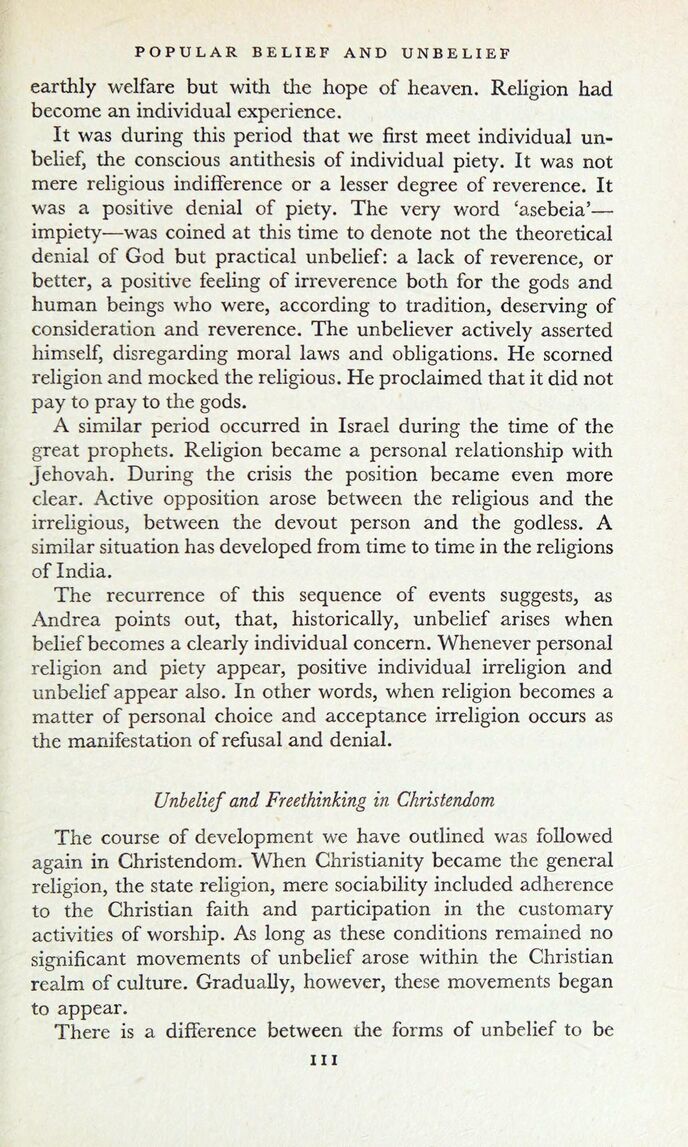
Full resolution (JPEG) - On this page / på denna sida - Part 3. The Psychology of Unbelief - 2. Popular Belief and Unbelief - The Emancipation of Personality - Unbelief and Freethinking in Christendom

<< prev. page << föreg. sida << >> nästa sida >> next page >>
Below is the raw OCR text
from the above scanned image.
Do you see an error? Proofread the page now!
Här nedan syns maskintolkade texten från faksimilbilden ovan.
Ser du något fel? Korrekturläs sidan nu!
This page has never been proofread. / Denna sida har aldrig korrekturlästs.
POPULAR BELIEF AND UNBELIEF
earthly welfare but with the hope of heaven. Religion had
become an individual experience.
It was during this period that we first meet individual
unbelief, the conscious antithesis of individual piety. It was not
mere religious indifference or a lesser degree of reverence. It
was a positive denial of piety. The very word ‘asebeia’—
impiety—was coined at this time to denote not the theoretical
denial of God but practical unbelief: a lack of reverence, or
better, a positive feeling of irreverence both for the gods and
human beings who were, according to tradition, deserving of
consideration and reverence. The unbeliever actively asserted
himself, disregarding moral laws and obligations. He scorned
religion and mocked the religious. He proclaimed that it did not
pay to pray to the gods.
A similar period occurred in Israel during the time of the
great prophets. Religion became a personal relationship with
Jehovah. During the crisis the position became even more
clear. Active opposition arose between the religious and the
irreligious, between the devout person and the godless. A
similar situation has developed from time to time in the religions
of India.
The recurrence of this sequence of events suggests, as
Andrea points out, that, historically, unbelief arises when
belief becomes a clearly individual concern. Whenever personal
religion and piety appear, positive individual irreligion and
unbelief appear also. In other words, when religion becomes a
matter of personal choice and acceptance irreligion occurs as
the manifestation of refusal and denial.
Unbelief and Freethinking in Christendom
The course of development we have outlined was followed
again in Christendom. When Christianity became the general
religion, the state religion, mere sociability included adherence
to the Christian faith and participation in the customary
activities of worship. As long as these conditions remained no
significant movements of unbelief arose within the Christian
realm of culture. Gradually, however, these movements began
to appear.
There is a difference between the forms of unbelief to be
III
<< prev. page << föreg. sida << >> nästa sida >> next page >>